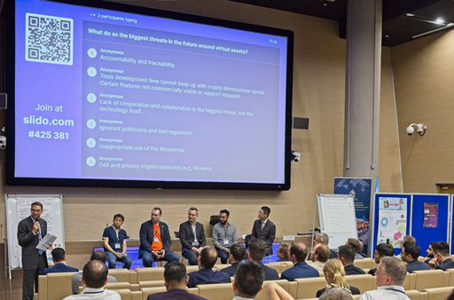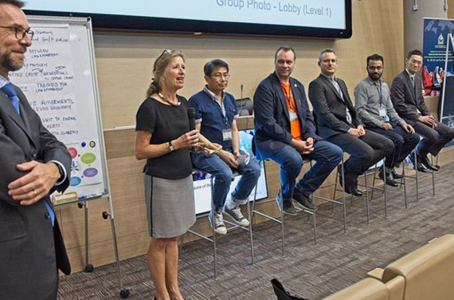SINGAPORE – Law enforcement agencies need to speed up in understanding new forms of crimes emerging from nascent technologies. For example, decentralized metaverses with new ways of communicating and accessing data that law enforcement may not be able to deal with. Non-fungible tokens or NFTs are increasingly permeating financial crimes such as money laundering schemes. They are hosted on decentralized platforms such as blockchains which pose great challenges to law enforcement due to the potential ability to run without an accountable authority. Law enforcement should look into novel solutions such as open source tools for better data gathering. Moreover, legislation needs to adapt to these changes, which takes time.

The INTERPOL New Technologies Forum: Law Enforcement in Web 3.0, held from 15 to 17 November 2022 at the INTERPOL Global Complex for Innovation in Singapore, highlighted the risk of law enforcement being outpaced by criminals. Organized in cooperation with the Bavarian State Ministry of Justice, the Forum highlighted that closer collaboration between law enforcement agencies, industry, and academia can help speed up the process of understanding new technologies and their impacts for crime. Through the New Technologies Forum, INTERPOL supports its 195 member countries in identifying and understanding the applied and practical use of the new technologies related to the evolution of the web into Web 3.0.
In his keynote address, Raja Kumar, President of the Financial Action Task Force, emphasized the increasing adoption of privacy-enhancing techniques to decouple links between cryptocurrency transactions and real-world identity. To cope with speed of crypto transactions and how criminals abuse privacy-preserving methods to obscure their identities, Mr. Kumar recognized the importance of adopting a whole-of-society and international collaboration approach to provide a robust response at ecosystem level. How new challenges and criminal techniques emerge so quickly are further complicated by the lack of clarity in regulations and enforcement especially with cross-jurisdiction transactions and crimes.
Another keynote speaker, Patrick Ghion of the Regional Cyber Competence Centre, Geneva State Police, highlighted criminals’ use of new communication vectors. For example, encrypted means of communication, closed-door groups, the need to provide illegal material to enter groups, and secure email providers. Mr. Ghion also challenged participants about preparing now for the threats that perhaps do not yet look realistic but are actually in the horizon, such as problems brought about by space security and brain-computer interfaces.
Regarding space security, for example, the proliferation of satellites may lead to both opportunities and threats for law enforcement. For instance, law enforcement can use satellites for data gathering. However, hacks into satellite communication threaten public safety and security. Meanwhile, brain-computer interfaces will blur the boundaries between reality perception and inducted signals.

The Forum also facilitated various workshops and knowledge exchange sessions where challenges of decentralized marketplace were identified. For instance, lack of accountability, hurdles to evidence gathering, and non-aligned legal frameworks. Law enforcement agencies need to anticipate lower barriers to entry with Web 3.0, which means building decentralized marketplaces will become much more accessible and user adoption will be very rapid and widespread.
As emphasized by various speakers and participants, criminals move quickly, and thus law enforcement agencies should look into tools that would help them move faster. The Forum recognized the need to collaborate in ensuring that technological tools are exploited to crunch massive amounts of data in a scientific, empirical, and reproducible way when conducting investigations. Cross-sector collaboration is also key in providing adequate and top-notch specialized training, which was identified as one of the needs of law enforcement to cope with the speed of crimes evolving in Web 3.0.











